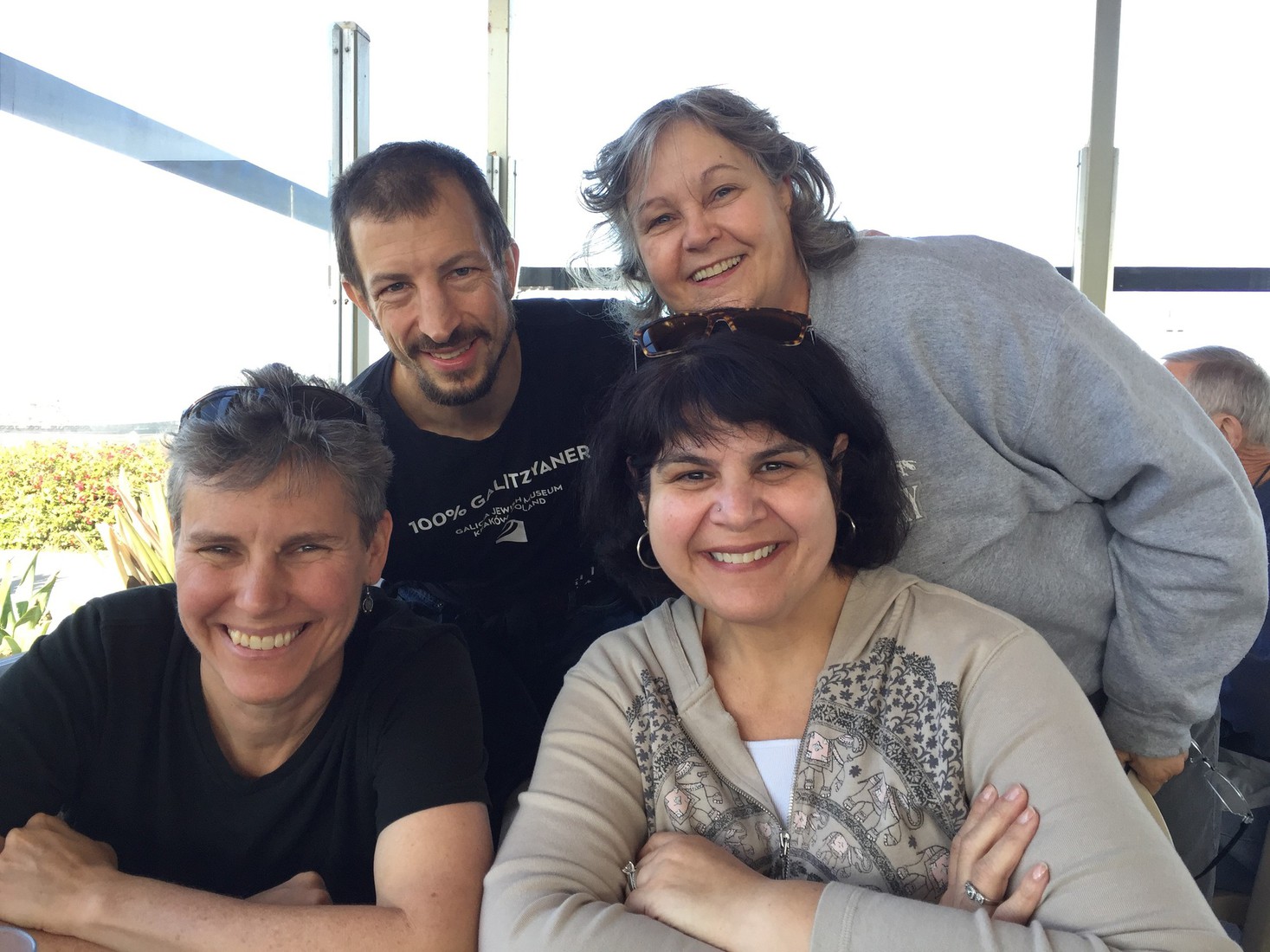
Sonia Tuma, AFSC regional director of the U.S. west region (bottom right). She is pictured with (clockwise from bottom left) Marielle Oetjen, Sarah Beth Horan, and Matt Leber. AFSC
Sonia has worked at AFSC since 1993. She shares some of her experiences from the past 25 years.
Q: How did you get involved in working for social change?
A: I grew up in a multicultural and multifaith family; my mom was Russian Jewish, and my dad was Iraqi Muslim. There were a lot of assumptions about how my extended family got along and my parents’ political perspectives. Most of those assumptions were wrong, and I learned early on the value of not assuming what someone believed based on their religious or ethnic backgrounds. My mom was an education activist, and she set an example of how to work for change. I was an activist in high school on several issues, and in college, I focused on Palestine issues, especially the Palestinian feminist movement.
Q: You joined AFSC as an intern in L.A. working for the Middle East Peace Program, which you later directed for eight years. What’s one of the most memorable campaigns you supported in that time?
A: In the mid-’90s, it was becoming increasingly clear that U.S.-led sanctions against Iraq were harming the country’s civilian population, causing the deaths of children and many of the most vulnerable in Iraq. AFSC developed campaigns to teach people about what was happening in Iraq, and to end the sanctions. The campaigns included a curriculum for elementary students, public speaking and media work, interfaith coalition building, advocacy in Washington and at the U.N., collecting material aids, and, eventually the Campaign of Conscience, an AFSC campaign to break the sanctions by importing water purification devices into Iraq. Over time, we really did change people’s perceptions and eventually, policy.
Q: What are some of the changes you’ve seen in AFSC’s work over the years?
A: The dialogue around Palestine has changed a lot. When I first came, AFSC was seen as radical for talking about a “two-state” solution. Over time, and with the decreased likelihood of a just two-state solution, we’ve focused more on the principle of self-determination. We’re also supporting the use of strategies that undermine the profit motive in a continued occupation.
The way we support youth has also changed. When I came to AFSC, we often worked with young people who were interested in learning about problems in the world and some who wanted to do service projects. Now our work focuses on helping young leaders become active social change agents in their own communities.
AFSC also continues to add tools to the social change tool chest. One example is our economic activism work. It includes the use of Investigate, a database that helps people screen their investments for companies involved in human rights violations. We also teach people how to use those tools to influence corporations, which are actors in global conflict in a way they didn’t use to be.
Q: What would you say are AFSC’s strengths?
A: AFSC can make connections in ways that other organizations are less able to. Because we’re a multi-issue, international organization, we can see connections between issues and potential partners in a deeper, more interconnected way than organizations who work with one constituency or on one issue.
We’re a values-based organization, which means we’re not just looking for expediency, but rather how we center the needs and experience of the people who are most impacted by the problem.
Q: What motivates you to continue the work that you’re doing amid so many challenges?
A: I truly believe that people can change, and that together, our work can change systems. And I have the experience of seeing positive change result from our work. Even if it’s hard and takes a long time, I know it’s possible because I’ve seen it work.
Finally, the people at AFSC continue to inspire me—our staff, volunteers, and partners are creative, committed, and do amazing work.